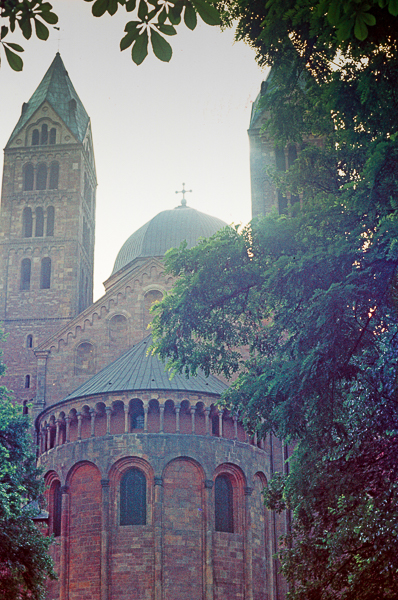
Speyer Cathedral is another outstanding Romanesque structure on our itinerary. It was built beginning in the 11th century.
Someday I really do hope to retrace at least some of our steps.
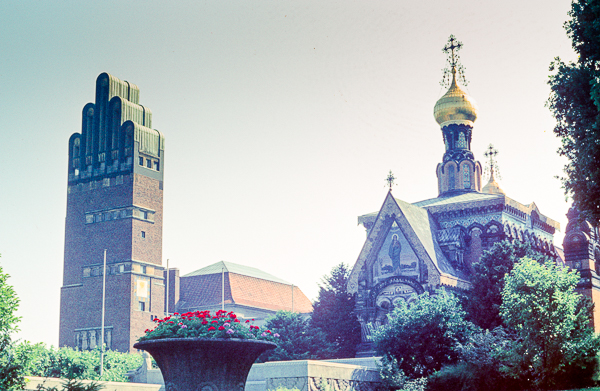
Now for something completely different....
Mathildenhöhe, in the city of Darmstadt, illustrates the height of German Jugendstil, better known by it's French name: Art Nouveau.
The "wedding tower" is part of the 1908 exhibition building. The information at the Mathildenhöhe link shows gives a history of the area and illustrates many more buildings and features.
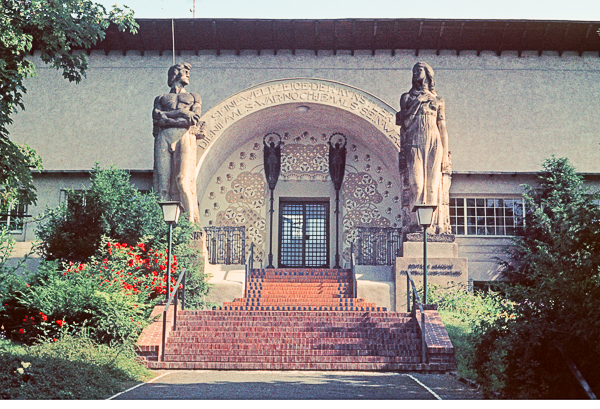
The Ernst Ludwig house was built in 1900. This is only the front facade of an amazing building (more at the link above). Yes, it's another place I'd like to revisit.
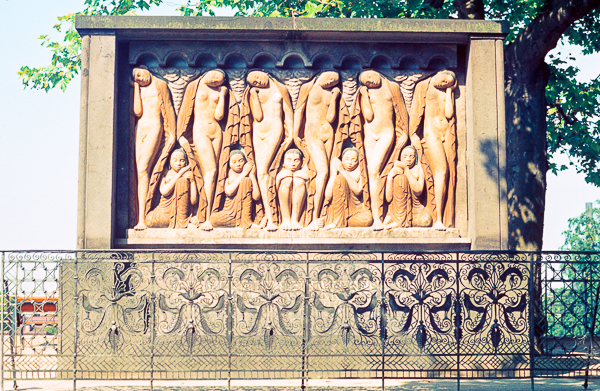
The gardens featured many monuments.
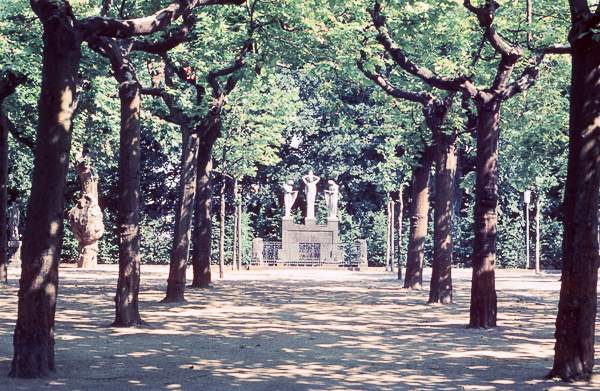
Even the trees in the garden were trimmed in stylized shapes.
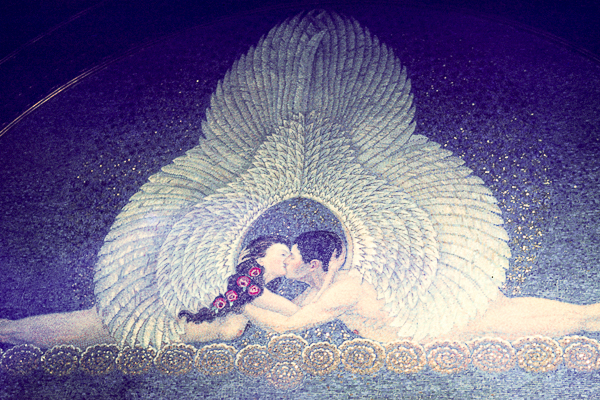
This mosaic was in the lobby of the wedding tower. I was disappointed that we couldn't visit any of the buildings. This picture was taken through the door. The mosaic is by Friedrich Wilhelm Kleukens, and is called The Kiss. It is no surprise that the location is a popular wedding venue.
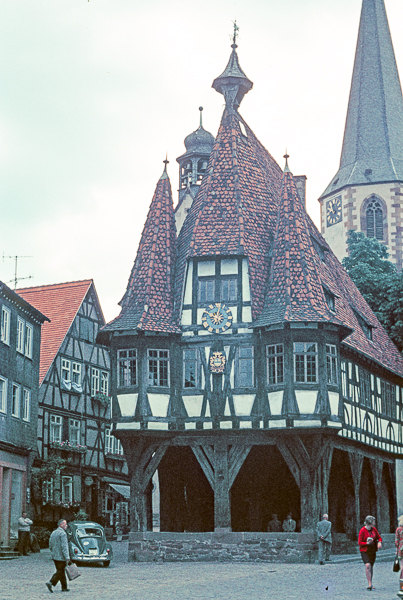
Now for something completely different....
I didn't note the town where I took this picture. My slide identifies this building as the Rathaus, or city hall. The date was carved into the timbers: 1484. The wonders of the World Wide Web have identified the town as Michelstadt.
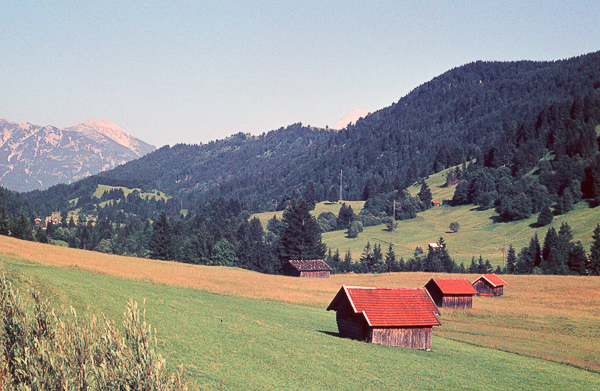
We knew we were nearing the end of our tour when we arrived in Bavaria.
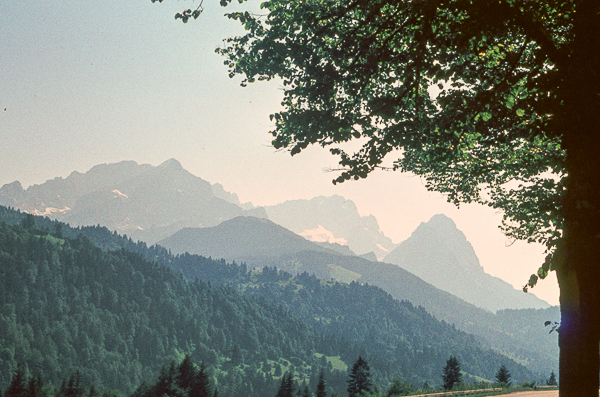
We were nearing some serious mountains, the Bavarian alps.
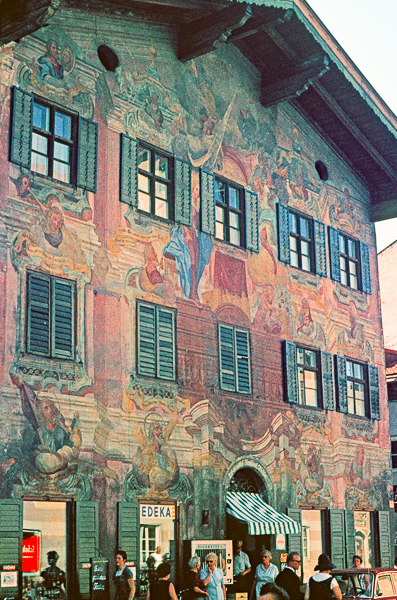
Now for something completely different....
Our first stop was in the town of Mittenwald. This was my first exposure to decorative exterior painting common in the Alpine regions of Bavaria and the Tirol.
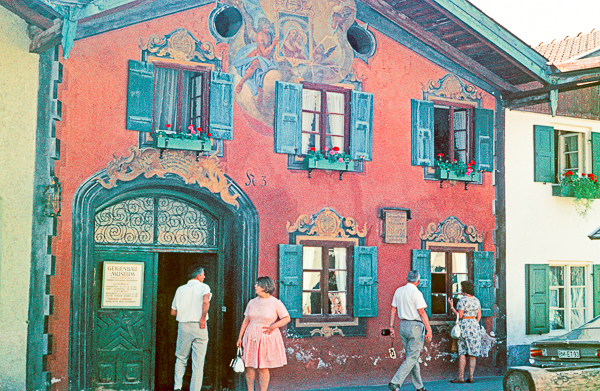
The museum dedicated to violin construction would be of much more interest to me now that I play the fiddle. Mittenwald was a major center of violin making through the 18th century. Since WWII there has been a resurgence of interested in hand-crafted instruments, and there is today a violin-making school in the town.
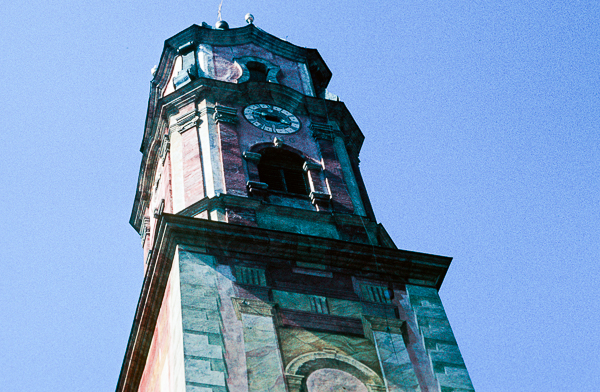
The church tower shows how tromp-l'oeil can enhance a building. The top of the tower is in relief, but the lower part is flat stucco painted to mimic relief. Hard to tell the difference.
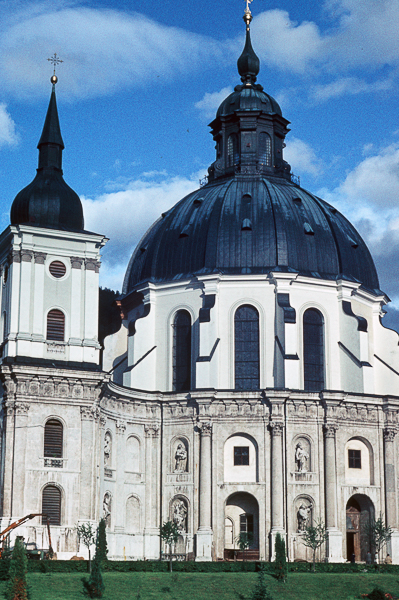
Our next stop was at Kloster Ettal, or Ettal Abbey. Although the abbey was founded in the 14th century, the current buildings date from the 18th century. The style is Baroque.
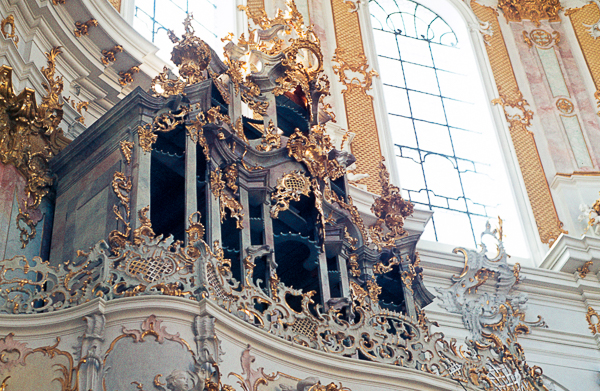
The interior was light enough that I could take pictures inside. Baroque is not my favorite, but this was magnificent.
The organ.
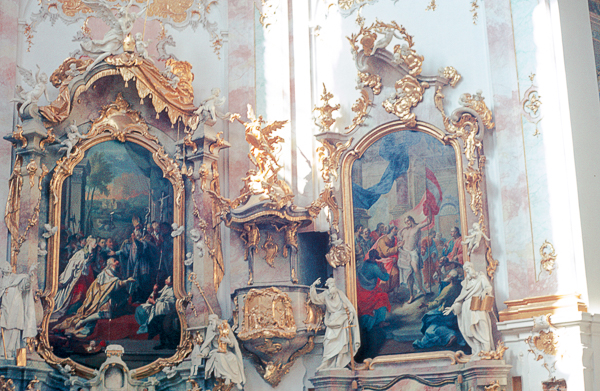 The pulpit
The pulpit 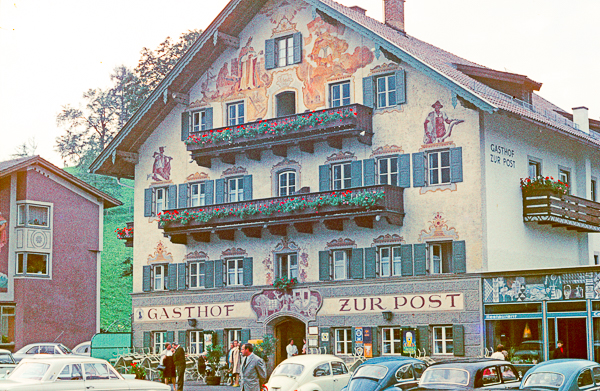
That night we spent our last time together as a group at the Gasthof zur Post in Kochel. I became quite familiar with it as it was one of the places where the Goethe Institute students ate meals.
I was excited about starting the next phase of the adventure, but this hostelry commemorates my first hangover. Suellen and I had a sad farewell over a bottle of wine. I was REALLY sad the next morning when we saw the larger group off to the Black Forest.
Click your "back" button to return to the previous page or click for our picture album.